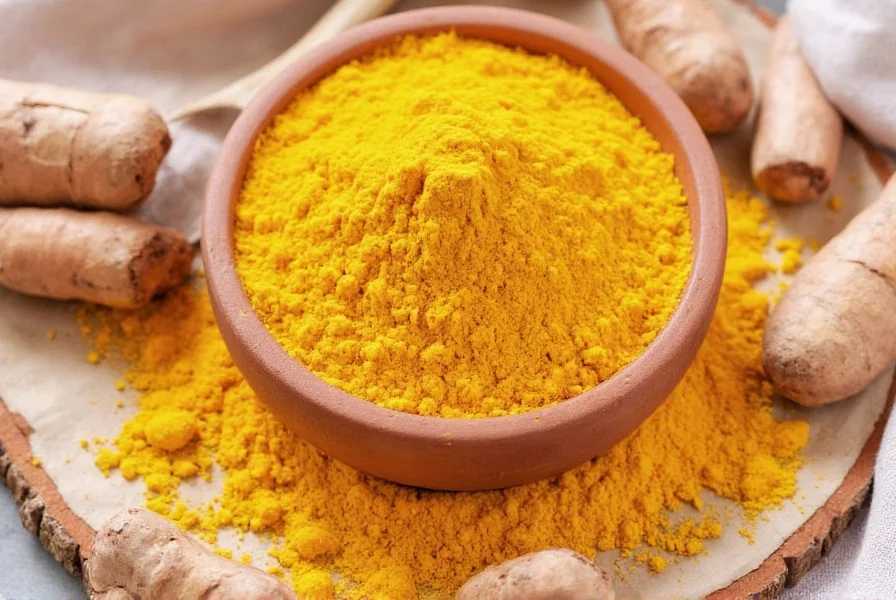For centuries, traditional medicine systems have utilized turmeric for inflammatory conditions. Modern science now validates these historical applications through rigorous research. The active compound curcumin demonstrates significant anti-inflammatory effects by targeting multiple biochemical pathways involved in inflammation.
The Science Behind Turmeric's Anti-inflammatory Action
Curcumin, turmeric's primary bioactive compound, works through several mechanisms to combat inflammation:
| Mechanism | Biological Effect | Research Support |
|---|---|---|
| NF-kB pathway inhibition | Blocks primary inflammation trigger | Multiple human trials |
| Cytokine reduction | Lowers IL-6, TNF-alpha markers | Systematic reviews |
| COX-2 enzyme suppression | Similar action to NSAIDs but safer | Preclinical and clinical studies |
| Antioxidant activity | Reduces oxidative stress inflammation | Well-documented in research |
Unlike pharmaceutical anti-inflammatories that typically target single pathways, curcumin's multi-target approach makes it particularly effective for chronic inflammation management. This polypharmacology explains why does turmeric reduce inflammation has become such a common health inquiry.
Clinical Evidence: What Research Shows
A 2022 meta-analysis published in Nutrients reviewed 37 clinical trials involving over 3,000 participants. The analysis concluded that curcumin supplementation significantly reduced CRP (C-reactive protein) levels—a key inflammation marker—by an average of 20-30% compared to placebo.
For osteoarthritis patients, a randomized controlled trial found that 1,000 mg of curcumin daily provided comparable pain relief to 800 mg of ibuprofen, but with fewer gastrointestinal side effects. This addresses the common question about turmeric vs NSAIDs for inflammation.
However, research also reveals important limitations. A major challenge is curcumin's poor bioavailability—only about 1% of consumed curcumin enters the bloodstream. This explains why how does turmeric work as an anti-inflammatory requires understanding of proper formulation.
Maximizing Turmeric's Anti-inflammatory Benefits
To achieve therapeutic effects from turmeric, consider these evidence-based approaches:
- Combine with black pepper: Piperine increases curcumin absorption by up to 2,000%
- Use with healthy fats: Curcumin is fat-soluble, so consume with avocado, olive oil, or coconut oil
- Choose enhanced formulations: Look for products with phospholipids or nanoparticles
- Maintain consistent dosing: Effects build over weeks of regular use
The best way to take turmeric for inflammation typically involves standardized extracts providing 500-1,500 mg of curcuminoids daily. Whole turmeric powder contains only about 3% curcumin by weight, making therapeutic dosing challenging through culinary use alone.
Realistic Expectations and Limitations
While turmeric shows promise, it's not a miracle cure. Research indicates:
- Effects are generally modest compared to pharmaceutical options
- Results typically appear after 4-8 weeks of consistent use
- Individual responses vary significantly based on genetics and health status
- Not suitable as sole treatment for severe inflammatory conditions
People often ask how long does it take for turmeric to reduce inflammation. Clinical trials suggest measurable improvements in inflammatory markers within 4 weeks, with optimal effects at 8-12 weeks of consistent use at appropriate dosages.
Safety Considerations
Turmeric is generally safe at recommended doses, but potential issues include:
- May interact with blood thinners and diabetes medications
- High doses can cause gastrointestinal discomfort
- Not recommended for people with gallbladder issues
- Pregnant women should consult doctors before therapeutic use
Unlike NSAIDs, turmeric doesn't carry risks of stomach ulcers or kidney damage at standard doses. This safety profile makes turmeric curcumin anti-inflammatory benefits particularly valuable for long-term management of chronic inflammation.
Practical Recommendations
For those seeking natural inflammation management:
- Choose supplements with at least 95% curcuminoids and bioavailability enhancers
- Start with 500 mg twice daily, gradually increasing to 1,000 mg twice daily
- Combine with dietary approaches like Mediterranean diet
- Track symptoms for 8-12 weeks before evaluating effectiveness
- Consult healthcare providers if taking medications or managing serious conditions
Remember that while scientific evidence for turmeric as anti-inflammatory is substantial, it works best as part of a comprehensive approach to inflammation management rather than a standalone solution.
How much turmeric should I take for inflammation?
For therapeutic anti-inflammatory effects, research suggests 500-2,000 mg of standardized curcumin extract daily. This typically requires supplementation, as culinary turmeric contains only about 3% curcumin. Look for products with bioavailability enhancers like piperine, and divide the dose into two servings taken with meals containing healthy fats.
How long does it take for turmeric to reduce inflammation?
Most clinical studies show measurable reductions in inflammation markers within 4 weeks of consistent use, with optimal effects appearing between 8-12 weeks. Individual results vary based on dosage, formulation, and the specific inflammatory condition being addressed. Patience and consistent daily use are essential for experiencing turmeric's anti-inflammatory benefits.
Is turmeric as effective as ibuprofen for inflammation?
Research shows turmeric (specifically curcumin) can provide comparable pain relief to ibuprofen for conditions like osteoarthritis, but through different mechanisms. While ibuprofen works faster for acute pain, curcumin offers a safer profile for long-term use without gastrointestinal risks. Turmeric works best for chronic inflammation management rather than immediate pain relief.
What's the best form of turmeric for anti-inflammatory effects?
The most effective forms combine standardized curcumin extract (typically 95% curcuminoids) with bioavailability enhancers. Look for products containing piperine (from black pepper), phospholipids, or nanoparticle formulations. These can increase absorption by 5-20 times compared to plain turmeric powder. For culinary use, combine turmeric with black pepper and healthy fats to maximize absorption.
Can I get enough anti-inflammatory benefits from cooking with turmeric?
While culinary use provides some benefits, achieving therapeutic anti-inflammatory effects typically requires supplementation. Cooking with turmeric (especially with black pepper and healthy fats) enhances absorption, but the curcumin concentration in turmeric powder is only about 3%. To reach the 500-1,500 mg of curcumin used in studies, you'd need to consume impractical amounts of turmeric through food alone.











 浙公网安备
33010002000092号
浙公网安备
33010002000092号 浙B2-20120091-4
浙B2-20120091-4